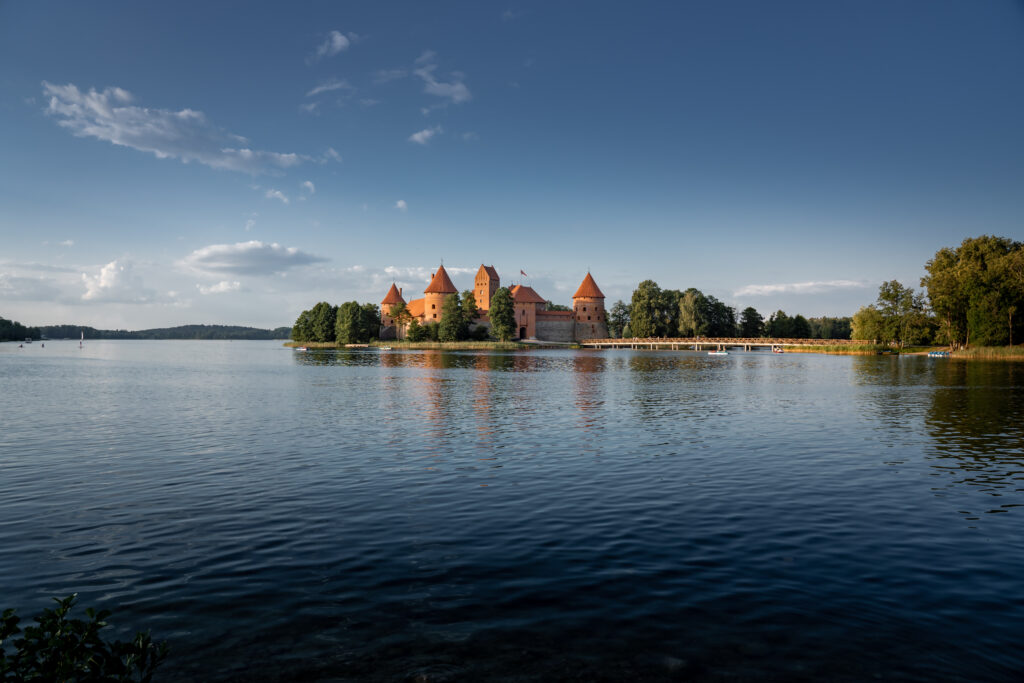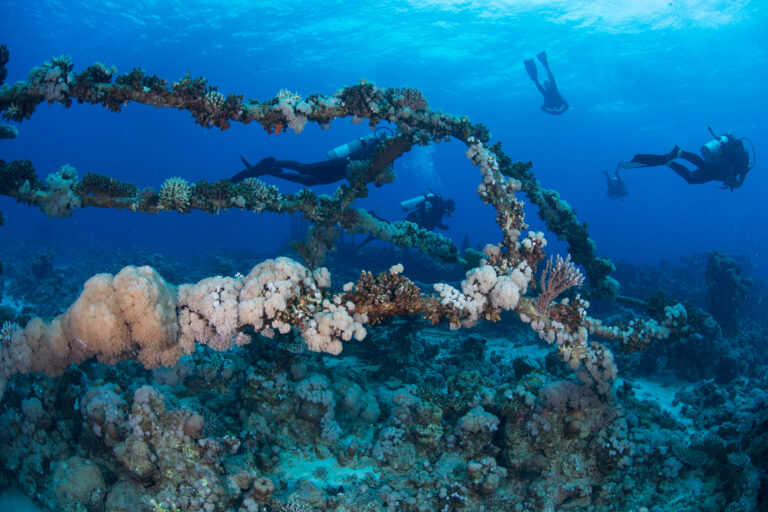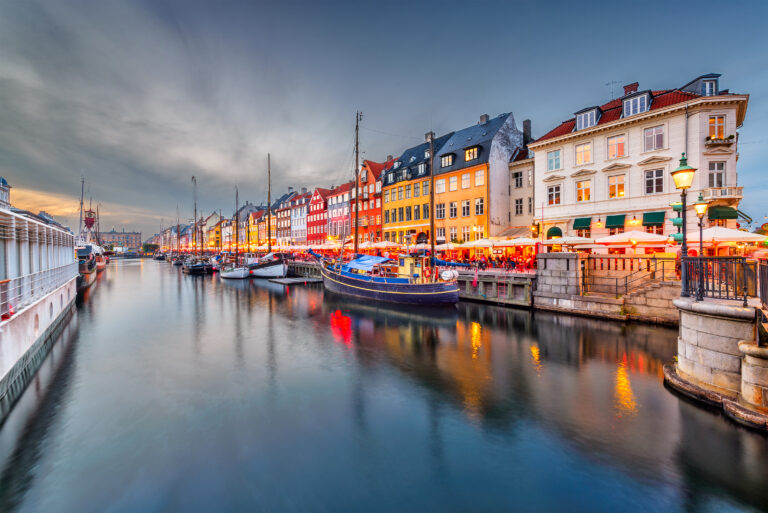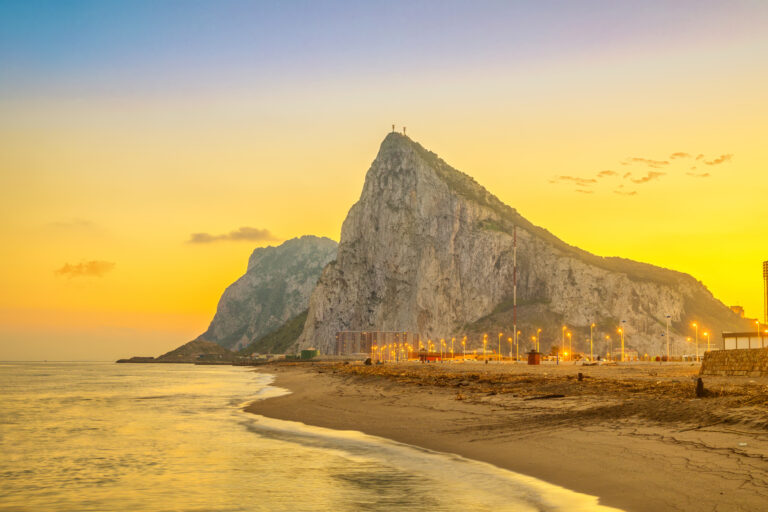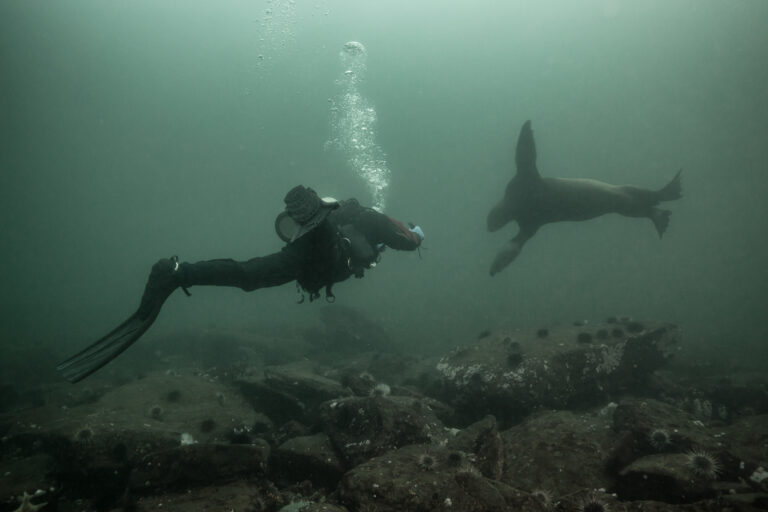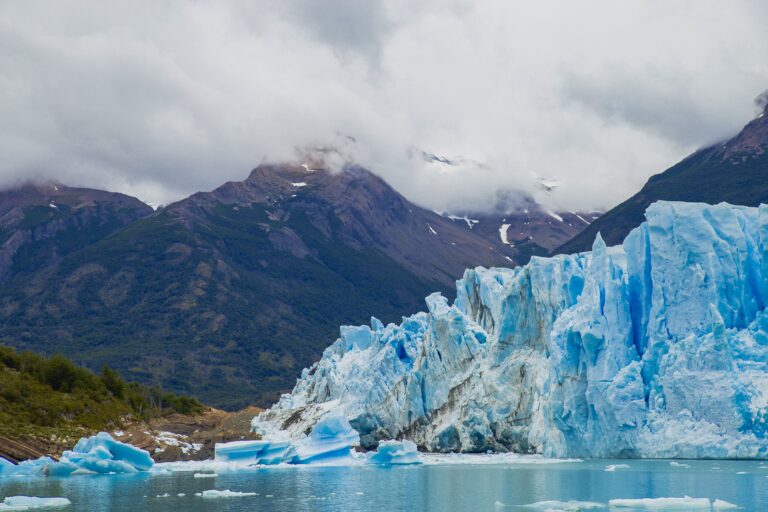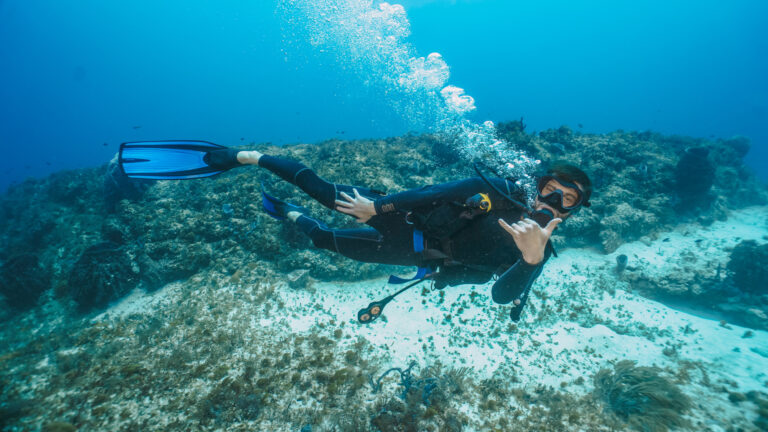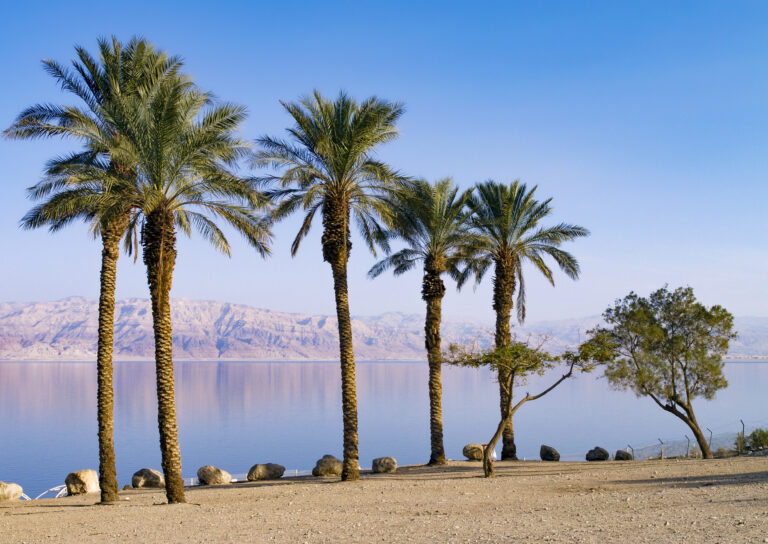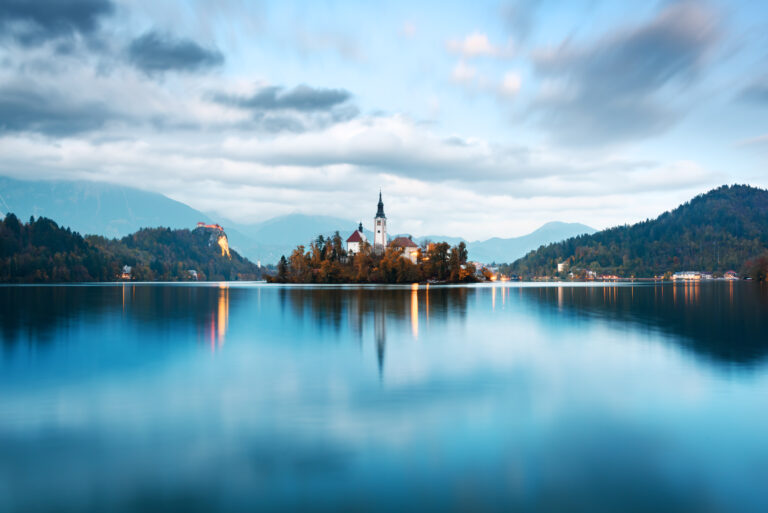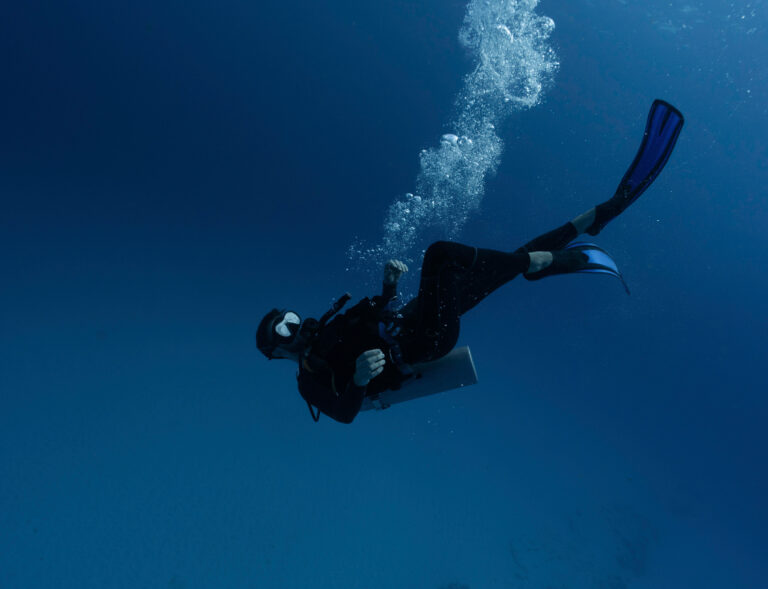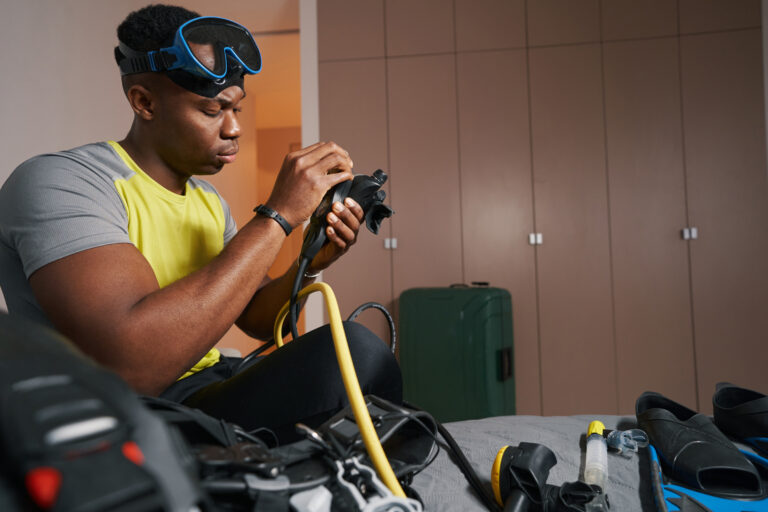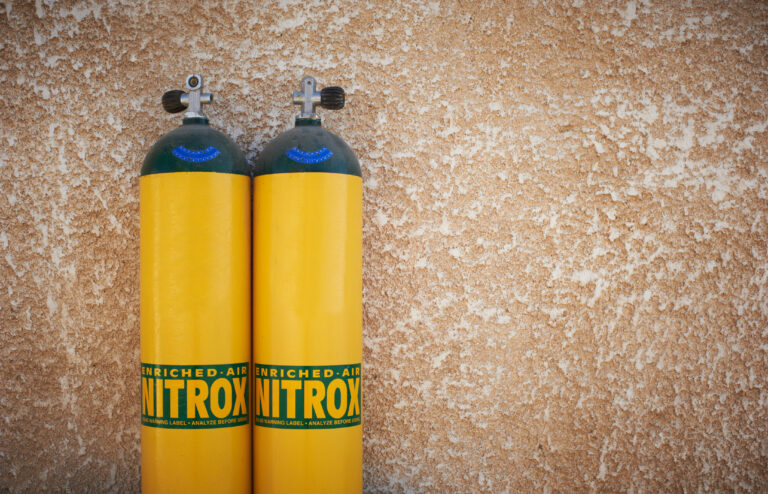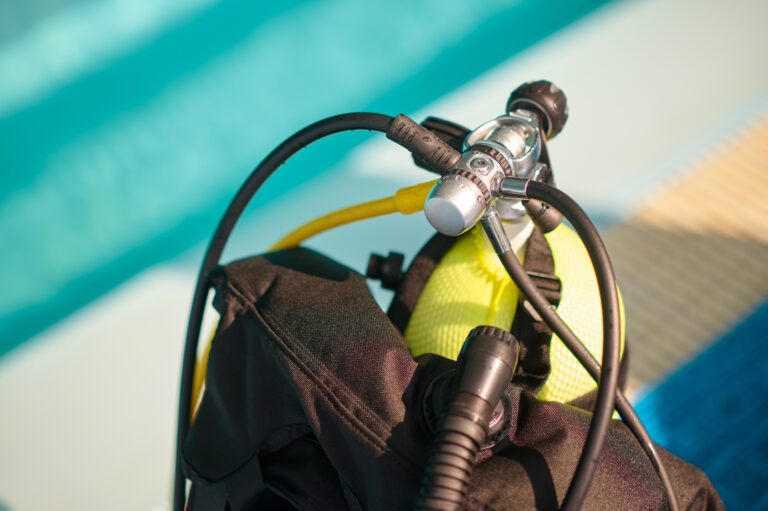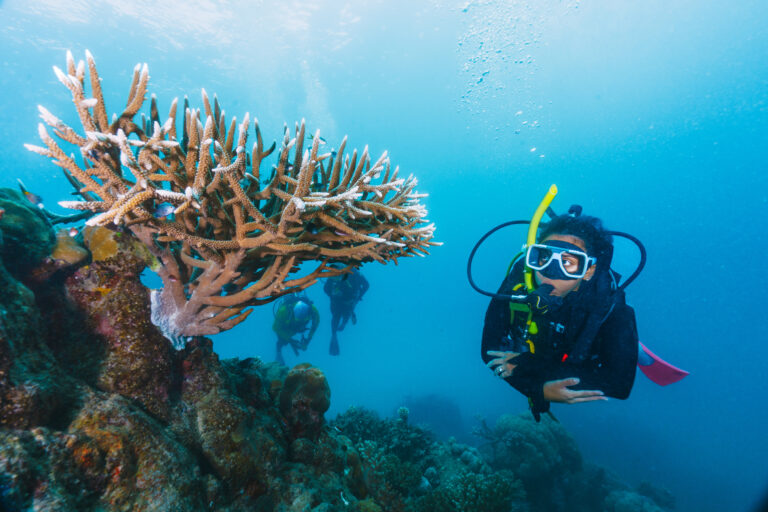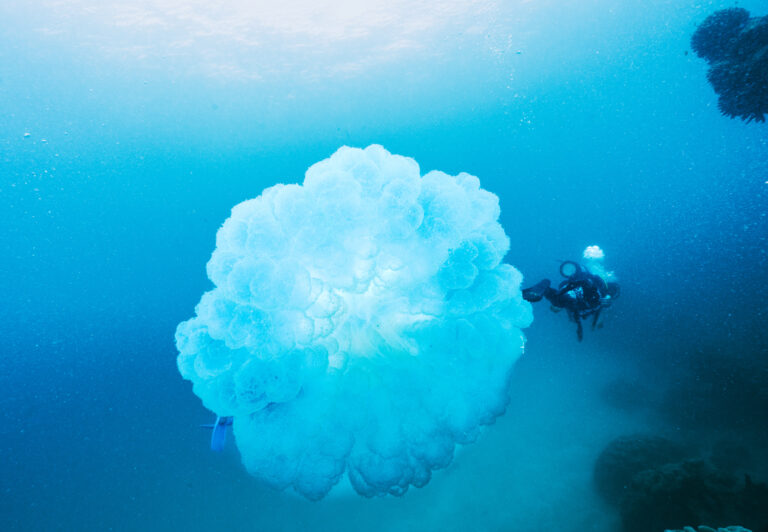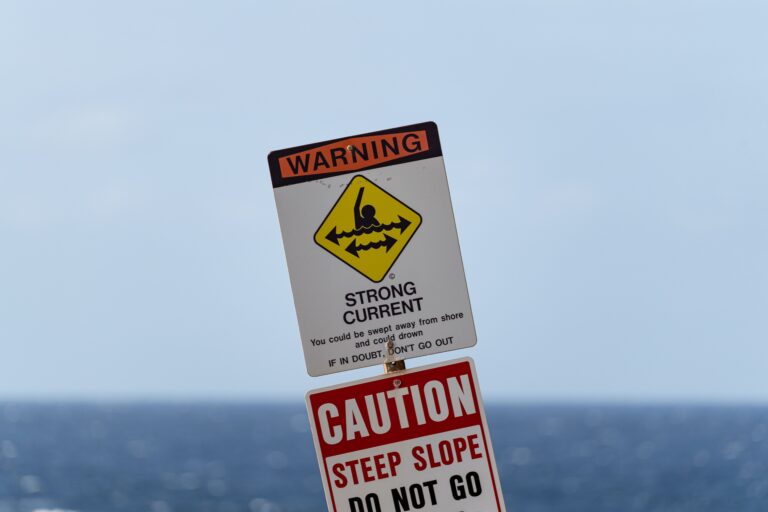SCUBA DIVERS’ TRAVEL GUIDE TO Lithuania
Lithuania is a hidden gem for scuba diving enthusiasts who love to explore the underwater world. This Baltic country offers a variety of diving opportunities, from freshwater lakes and quarries to the cold and mysterious Baltic Sea. Whether you are looking for historical wrecks, stunning underwater landscapes, or rich marine life, Lithuania has something for you.
Lithuania’s lakes are ideal for beginners and advanced divers alike, as they offer clear water, diverse flora and fauna, and interesting features such as caves, tunnels, and sunken objects. Some of the most popular lakes for diving are Trakai, Alausas, Luokesa, and Luokesaitis. You can also dive in some of the country’s quarries, such as the famous Rumšiškės quarry, where you can see an old Soviet plane submerged at 18 meters.
If you are looking for more challenging and adventurous diving, you can head to the Baltic Sea coast, where you will find dozens of wrecks dating back to different historical periods. The Baltic Sea is known for its low temperatures, strong currents, and poor visibility but also for its amazing preservation of wooden ships and their cargo. Some of the most famous wrecks in Lithuania are the Preußen, the Imperator Alexander III, and the Wilhelm Gustloff.
Lithuania is a destination that will surprise you with its diving potential and charm you with its culture and hospitality. Don’t miss the chance to discover this scuba diving paradise in Europe!
LOCATION AND GEOGRAPHY
Lithuania, nestled along the southeastern shore of the Baltic Sea, may not be the first destination that springs to mind for scuba diving enthusiasts, yet it offers a unique underwater experience steeped in history and natural beauty. The country’s relatively small coastline, stretching approximately 90 kilometers, is characterized by sandy beaches and a scattering of seaside resorts, such as Palanga and Klaipėda, which serve as gateways to the underwater world. Divers in Lithuania are drawn not only to the brackish waters of the Baltic for their surprisingly good visibility but also to the country’s numerous freshwater lakes and rivers, particularly the famed Lake Plateliai in the Žemaitija National Park. The underwater geography is intriguing, with a mix of sandy seabeds, freshwater lake beds, and intriguing dive sites featuring sunken forests, flooded meadows, and an array of wrecks – remnants of the region’s tumultuous past. While the Baltic Sea doesn’t boast the colorful coral reefs found in tropical destinations, its waters are rich with history, offering a different kind of treasure trove for divers to explore.
VISA AND ENTRY REQUIREMENTS
Lithuania, while not a traditional scuba diving destination, offers unique underwater experiences in its freshwater lakes and the Baltic Sea. However, before planning your dive trip to Lithuania, it’s essential to understand the visa and entry requirements. Lithuania is a member of the European Union and part of the Schengen Area, which means that EU citizens can enter with just an ID card. Non-EU travelers from countries that have visa-free agreements with the Schengen zone can stay for up to 90 days within a 180-day period without a visa for tourism purposes, which includes scuba diving. If you’re from a country that does require a visa, you’ll need to apply for a Schengen visa, which allows travel within the member states. Ensure your passport is valid for at least three months beyond your planned departure date from the Schengen area. Always check the latest visa requirements and travel advisories from your home country and the Lithuanian consulate or embassy well in advance, as regulations can change.
GETTING TO Lithuania
Getting to Lithuania for a scuba diving adventure is a straightforward endeavor, thanks to its well-connected transportation network. The country is served by several international airports, with Vilnius International Airport being the largest and most accessible for travelers from around the globe. Regular flights from major European cities make Lithuania easily reachable for divers looking to explore the underwater treasures of the Baltic Sea. For those traveling from neighboring countries, such as Poland, Latvia, or Belarus, road and rail connections are efficient and offer scenic routes into the heart of Lithuania. Upon arrival, divers can head towards the coastal town of Klaipėda, which acts as a gateway to some of the most intriguing dive sites in the region, including shipwrecks and unique marine habitats nestled in the relatively unexplored waters of the Baltic.
BEST TIME TO DIVE
The best time to scuba dive in Lithuania is during the summer months, from June to August, when the Baltic Sea’s temperatures are more comfortable, ranging from 16°C to 20°C (61°F to 68°F). Visibility in the water can reach up to 10 meters (33 feet), making this period ideal for exploring underwater sights. Divers can enjoy the unique experience of diving in the Curonian Spit or exploring sunken ships and aircraft from World War II that lie in the depths of the Baltic. Although diving is possible year-round, outside of summer, the water temperature drops significantly, requiring thicker wetsuits or drysuits, and the visibility can be reduced. It’s also worth noting that during the winter months, ice diving becomes an option for the more adventurous diver equipped with the proper training and gear.
ACCOMMODATION OPTIONS
In the relatively unexplored waters of Lithuania, scuba diving enthusiasts will find a modest but accommodating range of lodging options to enhance their underwater adventure. While Lithuania is not traditionally known for its scuba diving, the country offers unique experiences such as exploring sunken Soviet-era relics in its freshwater lakes. Accommodations near popular dive sites, particularly around the Curonian Spit and the coastal town of Klaipėda, range from cozy guesthouses and private vacation rentals to more upscale hotels that cater to divers with gear storage and rinse facilities. Some dive operators in the region have partnerships with local accommodations, providing package deals that include both diving and lodging. For those seeking a truly immersive experience, rustic lakeside cabins are available, allowing divers to be just steps away from their next underwater excursion. It’s advisable to book in advance, especially during the summer months, to secure the best options and ensure a comfortable stay as you explore the underwater treasures of Lithuania.
DIVE OPERATORS AND DIVE SHOPS
In the heart of the Baltics, Lithuania may not be the first destination that springs to mind for underwater exploration, but it offers a unique scuba diving experience for those willing to venture into its freshwaters. Dive operators and shops in Lithuania are well-equipped to guide divers through the country’s intriguing dive sites, which include flooded quarries, sunken forests, and even underwater museums. The most notable dive shops are concentrated around the capital, Vilnius, and the coastal city of Klaipėda, providing access to the mysterious depths of the Baltic Sea and the freshwater allure of lakes such as Plateliai. These operators cater to divers of all levels, offering PADI and CMAS certification courses, gear rental, and guided dive excursions. They emphasize safety and environmental awareness, ensuring that divers not only enjoy the submerged historical artifacts and natural wonders but also respect the delicate aquatic ecosystems. Whether you’re looking to explore the remnants of Soviet-era relics or the natural beauty of Lithuania’s underwater landscapes, local dive shops will provide the expertise and equipment necessary for a memorable subaquatic adventure.
TRANSPORTATION WITHIN Lithuania
While Lithuania may not be the first country that comes to mind for scuba diving, it offers unique underwater experiences in the Baltic Sea and its inland freshwater sites. Transportation within Lithuania is convenient and efficient, making access to dive sites relatively straightforward. The country has a well-maintained network of roads, and car rentals are available for those who prefer to drive themselves to various diving locations. Public transportation, including buses and trains, connects major cities and towns, and can be used to reach coastal areas where boat charters can take divers out to sea. For more remote or specific dive sites, especially inland lakes or quarries, it might be necessary to arrange private transfers or join guided tours that include transportation. Always check with local dive operators for the best advice on reaching your chosen dive spots, as they often provide shuttle services or can recommend the most practical transport options.
CURRENCY AND PAYMENT METHODS
When planning a scuba diving trip to Lithuania, it’s important to note that the official currency is the Euro (EUR). Credit and debit cards are widely accepted in cities and larger towns, with Visa and MasterCard being the most commonly used. However, when visiting more remote diving sites or smaller establishments, it’s advisable to carry cash as some may not accept card payments. ATMs are readily available in urban areas, but less so in rural regions, so it’s prudent to withdraw enough cash before heading out to more secluded dive spots. While diving centers and larger tour operators may accept online payments or bank transfers, local dive shops might operate on a cash-only basis. Always check with your specific dive operator regarding their preferred payment methods and whether taxes or service charges are included in the prices quoted to ensure a smooth and enjoyable underwater adventure in Lithuania’s freshwater lakes and the Baltic Sea.
LANGUAGE AND COMMUNICATION
When embarking on a scuba diving adventure in Lithuania, it’s important to note that the official language is Lithuanian, a unique Baltic language that might be challenging for non-native speakers to grasp. However, English is widely spoken within the diving community, especially by instructors and guides at dive centers catering to international tourists. Russian and Polish are also commonly understood due to historical ties. Underwater, divers communicate universally through hand signals, which transcend language barriers, ensuring a safe and enjoyable experience. It’s advisable to learn a few basic Lithuanian phrases for courtesy, as well as familiarize yourself with specific local diving signs that might be in use. Dive operators often provide briefings in English, and in case of language concerns, it’s best to confirm the availability of multilingual staff when booking your dive.
LOCAL CULTURE AND ATTRACTIONS
Lithuania, while not traditionally renowned for its scuba diving, offers a unique underwater experience that is deeply intertwined with its local culture and attractions. Above the surface, Lithuania is a tapestry of rich history and vibrant modernity, with its capital, Vilnius, boasting a UNESCO World Heritage-listed Old Town, and the coastal town of Klaipėda acting as a gateway to the Curonian Spit’s stunning landscapes. Divers in Lithuania can explore the mysterious depths of its numerous freshwater lakes and the Baltic Sea, where submerged historical artifacts and shipwrecks whisper tales of the past. After a day of diving, visitors can immerse themselves in local traditions by enjoying a hearty Lithuanian meal, such as cepelinai (potato dumplings) or šaltibarščiai (cold beet soup), and partaking in the lively festivals that celebrate Lithuania’s heritage. Whether it’s through the exploration of the Hill of Crosses, a poignant symbol of resistance and hope, or by engaging with the warm hospitality of the Lithuanian people, visitors will find that the country’s cultural offerings are as enriching as its underwater treasures.
CULTURAL ETIQUETTE AND TIPS
When scuba diving in Lithuania, it’s important to respect the local customs and cultural nuances to ensure a harmonious experience. Lithuanians are known for their connection to nature and take pride in preserving their environment, so divers should be mindful of their ecological footprint and avoid disturbing marine life or littering. It’s customary to greet dive operators and local fishermen with a friendly “Labas” (hello) and show appreciation with a sincere “Ačiū” (thank you). Punctuality is valued, so be sure to arrive on time for your dives. While English is widely spoken within the diving community, learning a few phrases in Lithuanian can go a long way in showing respect and can enhance your interactions with locals. Tipping is not mandatory, but it is appreciated for exceptional service. Lastly, Lithuanians often celebrate their dives with a shared meal or a drink, so don’t be surprised if you’re invited to join – it’s a great opportunity to immerse yourself in the local culture and share diving tales.
LOCAL LAWS AND REGULATIONS RELEVANT TO TOURISTS
Before plunging into the depths of Lithuania’s freshwater lakes and the Baltic Sea, scuba divers should be aware of local laws and regulations to ensure a safe and legal underwater adventure. Lithuania requires all divers to be certified by a recognized scuba diving organization, and it is mandatory to carry proof of certification and personal identification while diving. Diving within protected marine areas and national parks is regulated, and permits may be required, so always check with local authorities or dive centers for the latest information. Additionally, divers should be aware that some historical shipwrecks are considered cultural heritage sites, and it is illegal to remove artifacts or cause damage. Night diving, spearfishing, and the use of certain equipment may also be subject to restrictions. It is advisable to engage with local dive operators who are up-to-date with the current regulations and can provide guidance on environmentally responsible diving practices to preserve Lithuania’s underwater ecosystems for future generations.
SAFETY TIPS AND EMERGENCY CONTACTS
When diving in Lithuania, safety should be your paramount concern, as the Baltic waters can be challenging due to low temperatures and limited visibility. Always dive within your certification limits and ensure that you’re well-acquainted with cold water diving techniques and equipment, including the use of dry suits. It is crucial to have a thorough dive plan, check the weather conditions, and be aware of any local hazards such as fishing nets or shipwreck structures. Dive with a buddy and maintain regular communication throughout your underwater adventure. In case of an emergency, it is essential to know the local emergency contacts: call 112, the European emergency number, which is available throughout Lithuania for immediate assistance. Additionally, have the contact information for the nearest hyperbaric chamber, which is located at the Klaipėda University Hospital (Klaipėdos universitetinė ligoninė), reachable at +370 46 39 7800. Ensure that your dive operator is aware of these contacts and has a means of communication with the surface at all times. Lastly, always carry your dive insurance information and understand the procedures for activating it if necessary.
HEALTH AND TRAVEL INSURANCE
When planning a scuba diving trip to Lithuania, it is crucial to consider health and travel insurance that covers diving activities. While Lithuania may not be the first country that comes to mind for underwater exploration, its freshwater lakes and the Baltic Sea offer unique diving experiences, such as exploring sunken ships and witnessing diverse marine life. However, diving always carries inherent risks, and access to hyperbaric chambers or specialized medical care may be limited. Therefore, divers should ensure their insurance includes coverage for potential diving accidents, emergency medical evacuation, and hyperbaric treatment if necessary. It’s also wise to check if the policy covers the costs of trip cancellations, gear loss, or theft, which can provide peace of mind. Before departure, verify that your insurance is accepted by local dive operators and medical facilities in Lithuania, and carry proof of insurance with you. Remember, a well-chosen insurance policy allows you to fully enjoy Lithuania’s underwater treasures while being prepared for any unexpected events.

